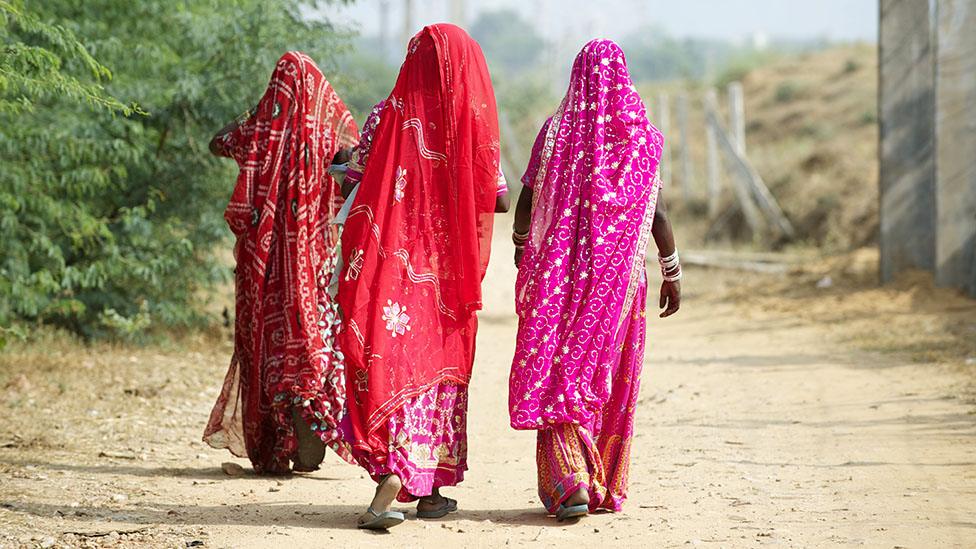Jharkhand: Murdered India teen's dreams snuffed out by stalker
- Published
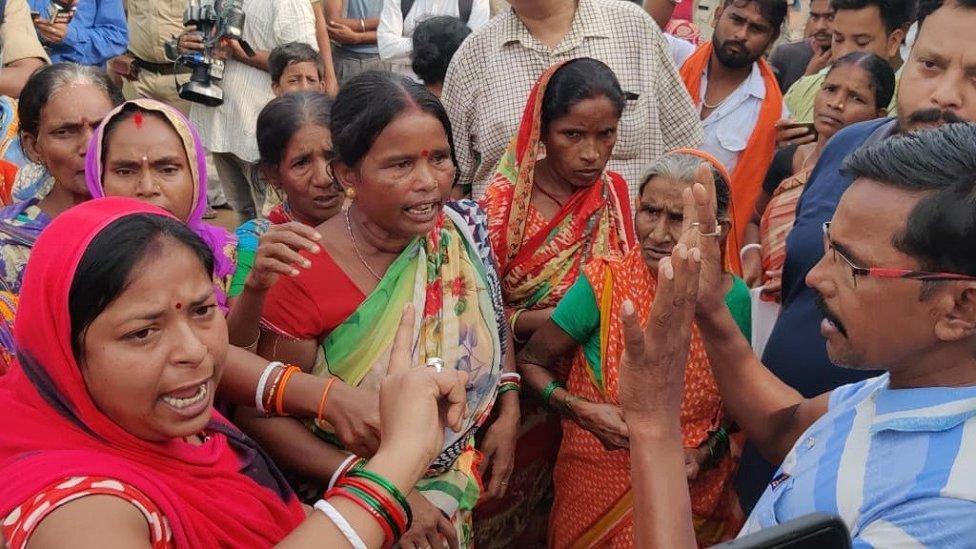
Ankita's death sparked massive protests in her city
The death of a schoolgirl after being set on fire by an alleged stalker has triggered protests in the eastern Indian state of Jharkhand. BBC Hindi's Ravi Prakash reports on the incident and its aftermath.
Ankita Singh died in the early hours of Sunday in a hospital in the state capital of Ranchi, where she had been admitted with severe burn injuries. According to the police complaint, she was 19 years old.
Police have arrested two men - the main accused, Shahrukh, had been harassing the girl on the phone for a few days, they have said. The other man is allegedly an associate who provided the petrol used for the attack.
Government data says that thousands of stalking cases are reported in India every year. Gender rights activists say the number could be much higher as victims hesitate to approach the police out of fear. Over the years, there have also been several cases of stalkers attacking or throwing acid on women who have rejected them.
A major reason for Ankita's death sparking protests and making headlines across the country was that the victim and alleged perpetrator belonged to different religions.
Ankita's grief-stricken family said she was a caring girl who loved her family and wanted to study well.
"She wanted to get a government job so that she could help her father support the family," said her grandmother, Vimla Devi.
Ankita's mother had died of cancer a year and a half ago, so she lived with her father, grandparents and younger brother.
"After her mother's death, she took good care of her younger brother. She was a very sensitive girl," her grandmother added.
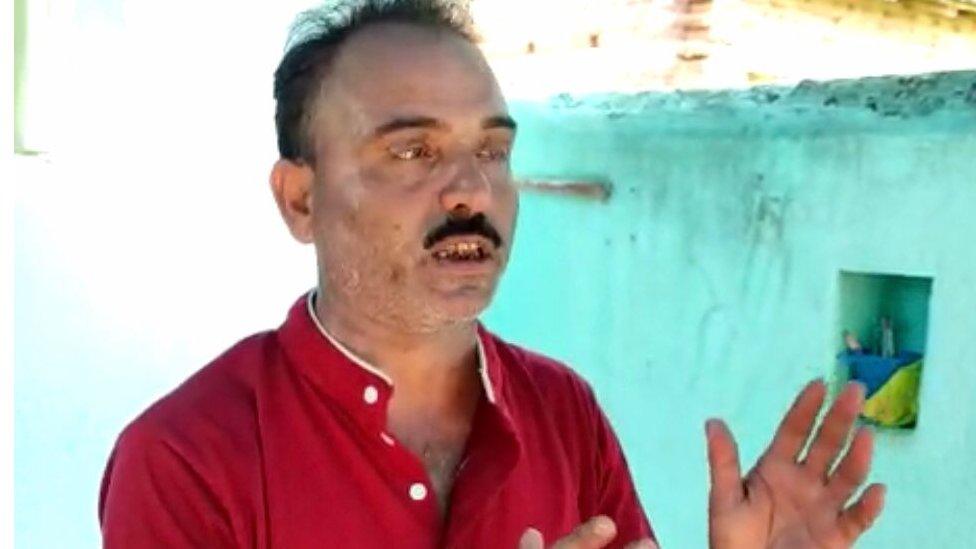
The victim's father, Sanjeev Singh
Her father, Sanjeev Singh, has said in the police complaint that his daughter had told him that Shahrukh - who lived in the same neighbourhood - had been harassing her by calling her on the phone several times. At first, he says, he didn't take it seriously.
Hours before her death, Shahrukh allegedly called Ankita and told her that he would kill her if she didn't meet him. Mr Singh says he was planning to talk to Shahrukh and his family members the next morning.
But at around 4am, while Ankita was sleeping near a window, Shahrukh allegedly poured petrol on her and threw a lit match.
Ankita's death has sparked protests by Hindu right-wing organisations who have alleged that Shahrukh, a Muslim, wanted to commit "love jihad" by converting the victim, a Hindu, to his religion.
"Love-jihad" is a controversial term used by radical Hindu groups to accuse Muslim men of converting Hindu women by marriage.
Amber Lakra, police superintendent of Dumka city, where both Ankita and Shahrukh lived, told BBC Hindi that the crime was not one of religion. He added that Shahrukh had been calling Ankita on the phone for the past few days and harassing her.
"We are being especially vigilant as the boy and girl belong to different religions," he added.
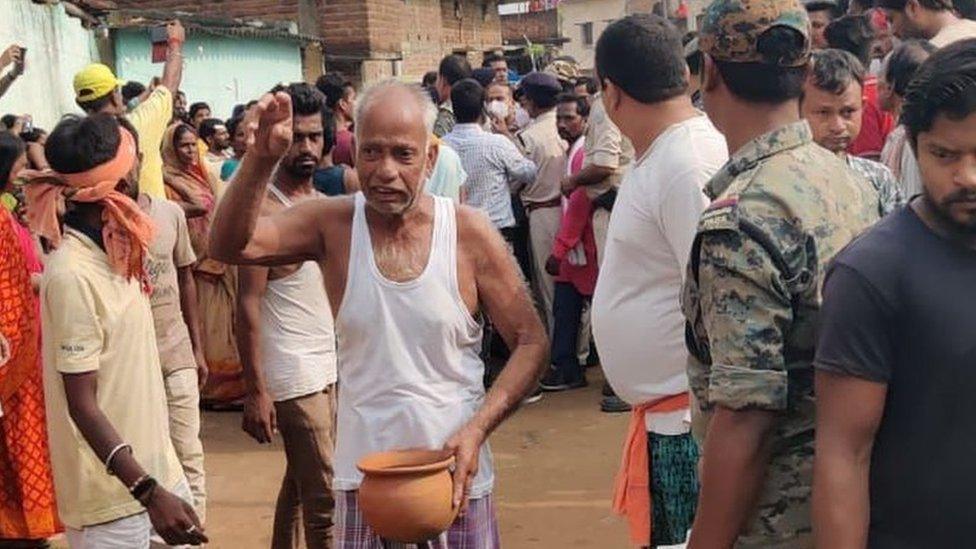
The victim's grandfather performed her last rites
The Bharatiya Janata Party (BJP), which is in opposition in the state, has accused the government of not acting swiftly enough, and being distracted by a political controversy, external.
But the government - a coalition led by regional party Jharkhand Mukti Morcha - has sent senior police officials to Dumka, announced compensation for Ankita's family, and promised swift punishment to the accused.
The Jharkhand high court has also asked police for a report on the murder and ordered that the teen's family be provided adequate security.
Two videos of Ankita in hospital have gone viral on social media. In one of them, she is answering questions from the Dumka executive magistrate. In it, she accuses Shahrukh of pouring petrol on her through the window.
A doctor at the hospital in Ranchi, where Ankita had been shifted after primary treatment, told BBC Hindi that she had suffered 45% burns to her body.
"Her face was untouched, but her body was badly burned," he said, speaking on condition of anonymity.
Back in Dumka, Ankita's family is inconsolable.
"Now we only have her memories," says her grandmother.
"This house feels empty."

Read more India stories from the BBC:

- Published10 February 2020
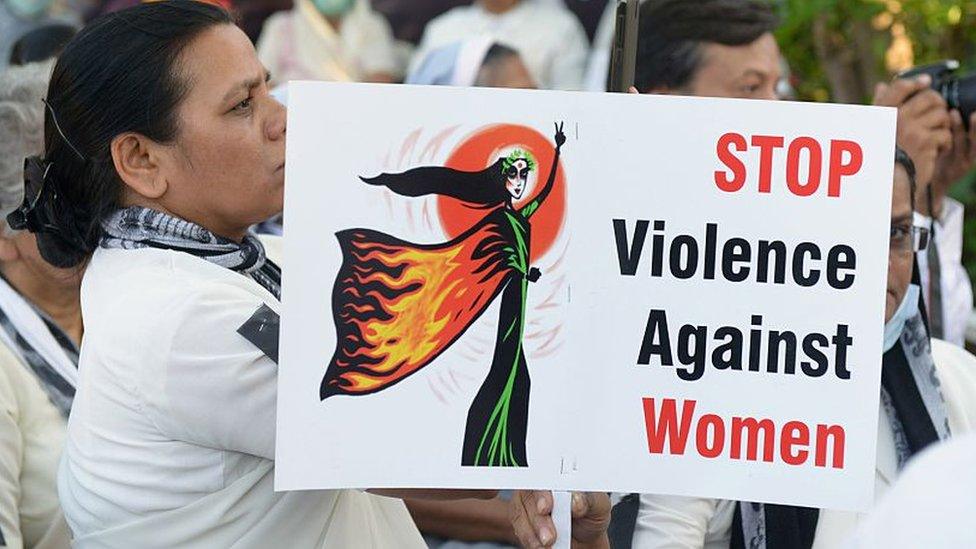
- Published28 June 2018
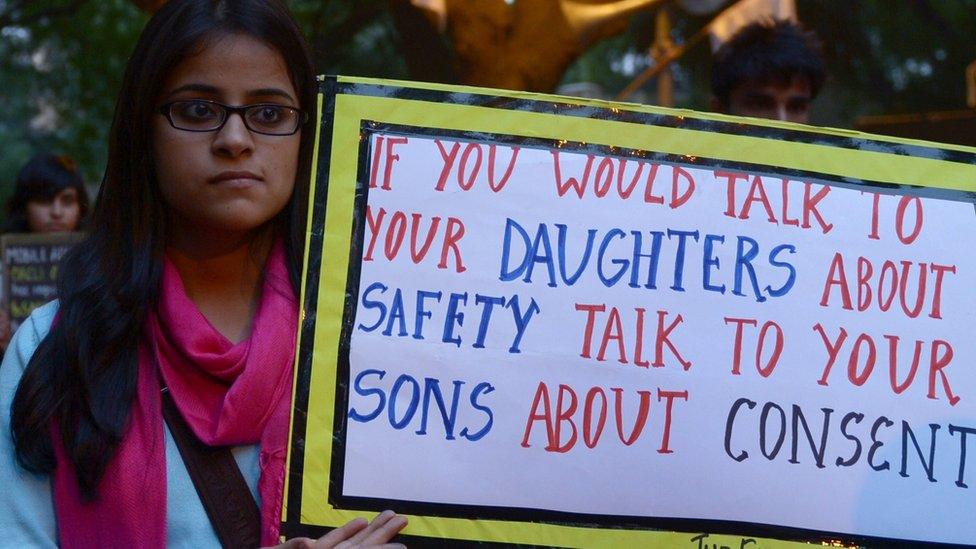
- Published3 May 2022
